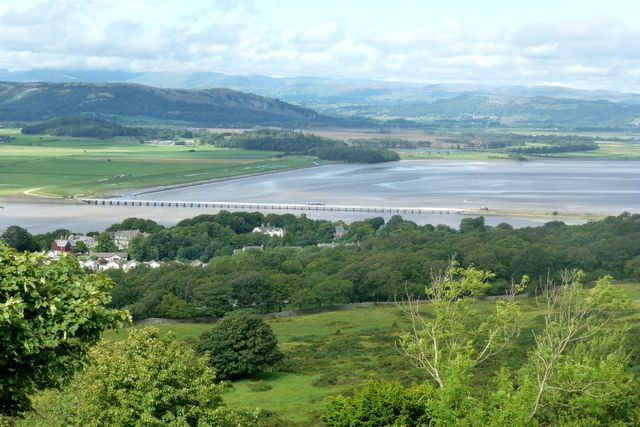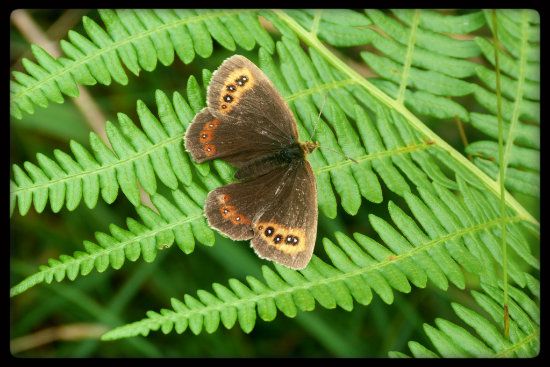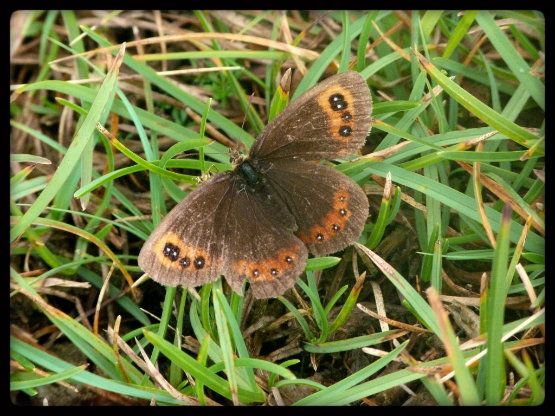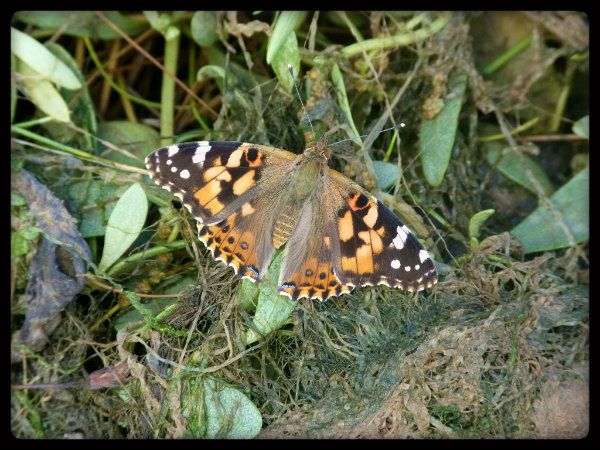Fontmell Down, Dorset, Sunday 19th. Excellent weather with temperatures up to 28c and only a gentle breeze offering just the right conditions for my journey from South Wales to see
Silver-spotted Skipper and some of the other downland species. On arriving the early morning mist was slowly burning away off the downs and it added a pleasant atmosphere to this beautiful location that is so well loved and frequented by butterfly enthusiasts, the grasses were alive with flowers and the insects and butterflies were having the proverbial 'field day', and I must mention here and now that
Meadow Brown were to be seen in their hundreds, and considering the wet summer conditions, they've had a great season. Contrary to the multitudes of Meadow Brown came the mystery of the missing
Chalkhill Blue, they were on the Down but you had to really look out for them, and after the incredible spectacle of seeing them in their countless hundreds on the Cotswolds, and reading on these sightings pages of similar numbers on the Wolds and other places, I was totally perplexed that their numbers were so few on Fontmell.
And so onto the search for
Silver-spotted Skipper, it was only ten minutes before I located the first insect of the day, a rather worn male specimen, but the critter was hyper in the heat, but still gave the clue that the yellow daisies were flavour of the day, it refused both the field scabious and the plentiful dwarf thistle, and it allowed me to focus my attentions on yellow daisy type flowers ie hawkbit, hawkbeard, hawkweeds etc with reasonable success, I found a total of nine before my attentions were distracted onto the other insects enjoying the wonderful weather. I reflected during my elevenses (coffee & Kit Kat what else!!!

) that it cannot get much better than 'butterfly chasing' in such beautiful weather in such a beautiful place...now who could ask for more?
Content with my efforts with the
Silver-spotted Skipper and a few reasonably good photo's considering their activity, I now sought out
Adonis Blue at the lower reaches of the Down where on previous visits I've found them rather in favour of the particular micro climate it provides, I was not to be disappointed, they were present but in rather low numbers, I doubt I saw more than a dozen, but they were at least all nice and fresh.
Brimstone were in exceptionally good numbers, they constanly searched out the dwarf thistles which I know they consider a delicacy

should also mention here that
Large White were also in healthy numbers. The nationally scarce
Chalk Carpet macro moth is to be found here, I saw at least a half dozen, but the moth that stole the show was a stunning
Grass Emerald that no photograph can do real justice too. Rounded off my visit with a nice fresh
Painted Lady and a dead cert
Essex Skipper which brought a total species count for the day up to 18 which added the following to those already mentioned
Small Skipper, Small White, Green-veined White, Small Copper, Common Blue, Dark Green Fritillary, Speckled Wood, Gatekeeper, Ringlet and Small Heath.
Martin Down was my next visit where I met a group of hardy enthusiasts searching for
Silver-spotted Skipper they had apparently spent all day looking for this elusive little butterfly yet saw only two, this made my trip to Fontmell even more worthwhile, but my intended co-visit to
Alners Gorse to see
Brown Hairstreak was cancelled, I was forewarned by a regular visitor to the reserve that the species has had a poor season there, with very few having been seen...but you can't have it all can you
 Bill
Bill 
![P1030953Silver-spotted Skipper-1-1 [1024x768].JPG (126.69 KiB) Viewed 871 times Silver-spotted Skipper on it's preferred flower of the day.](./files/thumb_8479_def8491164d88d2320d08f8c135f8888)
- Silver-spotted Skipper on it's preferred flower of the day.
![P1030930Fontmell Board [1024x768].JPG (226.07 KiB) Viewed 871 times Fontmell Down has quite a story to tell...](./files/thumb_8479_5e9432d7feed690c88ea64982716ad07)
- Fontmell Down has quite a story to tell...




